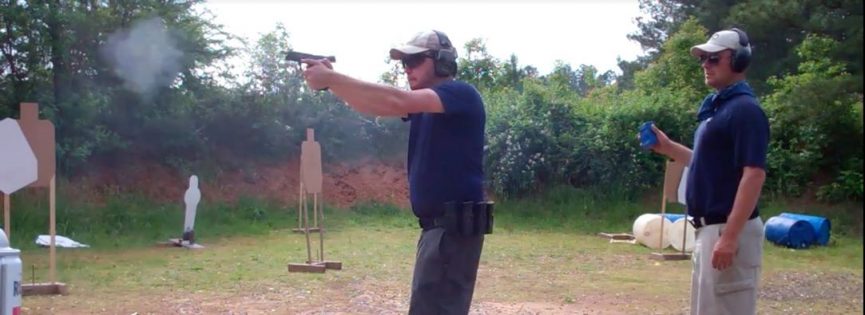When I look back at 2016 and try to distill the actual lessons I learned specific to shooting, the one that most stands out to me is the value of repeatability.
In matches, consistency is key. Stage wins are largely irrelevant to match wins. You can take second or third on every stage and win the match because the guy who wins half the stages drops out of the top ten on the others because of his risky plans. I know this.
But somehow I never made the connection to practice. My practice was very unstructured. I never consciously planned this way, but generally it went something like this: set a goal, say a 1.6 Bill Drill in live fire. “Warm up” (fail over and over) until I managed to hit it one time. Consider that “my baseline” and move the par timer down to 1.5 and start trying to hit that. But rather than routinely coming one or two tenths slow until slowly working my way down to 1.5, I would usually start flubbing the drill and be more like 2.0. What the hell? I’d think to myself. I just did a 1.6. What’s going on?! This would lead to frustration. Frustration would lead to losing focus. Sometimes I’d snap out of it and figure out how to be consistent again. Other times I wouldn’t and just feel defeated and change drills because it clearly wasn’t working.
A second pathology I would exhibit was trying to rush to reset for another rep of the drill as soon as I’d had a bad one. I’d fumble the reload on 6-reload-6 and dutifully finish the drill and holster quickly and before my right hand was even off the gun my left hand was pressing the start button on the timer again. Then I’d fumble the draw and dutifully complete the drill and try to reset to quickly do another rep.
(My best theory is that when I had a bad rep, my subconscious would still be processing it and analyzing it and so it wasn’t ready for the next rep. I’ve made a conscious effort to make sure to take a pause after a bad rep, not to mentally reinforce but just to make sure I’ve let it go and visualized success again. This spiral of failure begetting failure was horribly unproductive.)
I didn’t realize it, but I was letting myself immediately forget the bad reps, like they “didn’t count.” I would only remember the one in five that went well and think that was my baseline. This developed a very skewed self image.
The first warning signs were during my two day class with Ben Stoeger in the spring. Part of the class was setting up a practice stage and running it four or five times. The first stage of the first day I was the first shooter on (internet celebrity has its downsides). I shot it pretty confidently with no big screwups.
“That was pretty good. I think you’ll have a hard time beating that,” Stoeger told me prophetically. I gave a doubtful grunt. I wasn’t even trying that hard. Surely I could turn the knob up and beat that time.
“Hmmm, I dunno,” I said.
“We’ll see,” he said.
He turned out to be exactly right. Every run after that was faster, but with misses, or slower because of makeup shots on steel. My first run was the best.
At that time, in my mind, being able to do it once was no different from being able to do it five times in a row. Now, I appreciate how completely and totally wrong that is. Hitting a goal par time once just means you got lucky. Doing it three or five times in a row means you’re actually good.

